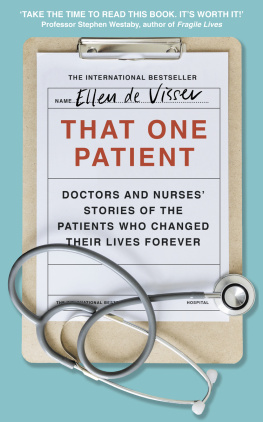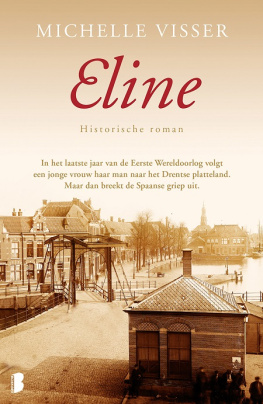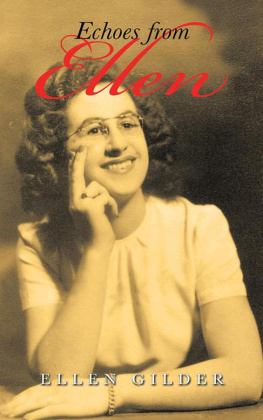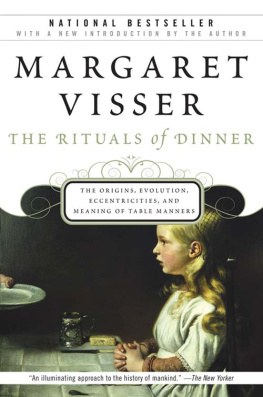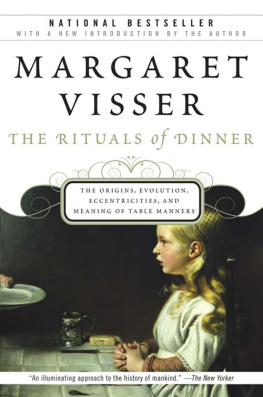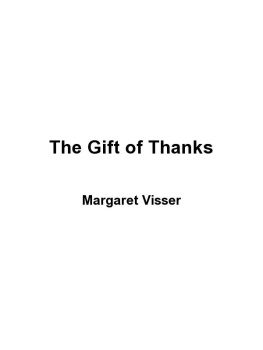Ellen de Visser - That One Patient
Here you can read online Ellen de Visser - That One Patient full text of the book (entire story) in english for free. Download pdf and epub, get meaning, cover and reviews about this ebook. year: 2020, publisher: HarperCollins Publishers, genre: Science fiction. Description of the work, (preface) as well as reviews are available. Best literature library LitArk.com created for fans of good reading and offers a wide selection of genres:
Romance novel
Science fiction
Adventure
Detective
Science
History
Home and family
Prose
Art
Politics
Computer
Non-fiction
Religion
Business
Children
Humor
Choose a favorite category and find really read worthwhile books. Enjoy immersion in the world of imagination, feel the emotions of the characters or learn something new for yourself, make an fascinating discovery.
- Book:That One Patient
- Author:
- Publisher:HarperCollins Publishers
- Genre:
- Year:2020
- Rating:5 / 5
- Favourites:Add to favourites
- Your mark:
- 100
- 1
- 2
- 3
- 4
- 5
That One Patient: summary, description and annotation
We offer to read an annotation, description, summary or preface (depends on what the author of the book "That One Patient" wrote himself). If you haven't found the necessary information about the book — write in the comments, we will try to find it.
That One Patient — read online for free the complete book (whole text) full work
Below is the text of the book, divided by pages. System saving the place of the last page read, allows you to conveniently read the book "That One Patient" online for free, without having to search again every time where you left off. Put a bookmark, and you can go to the page where you finished reading at any time.
Font size:
Interval:
Bookmark:



4th Estate
An imprint of HarperCollinsPublishers
1 London Bridge Street
London SE1 9GF
www.4thEstate.co.uk
HarperCollinsPublishers
1st Floor, Watermarque Building, Ringsend Road,
Dublin 4, Ireland
This eBook published in Great Britain by 4th Estate in 2021
First published in Great Britain in 2020 by 4th Estate
First published in the Netherlands as Die ene patint by Ambo|Anthos in 2019
Copyright Ellen de Visser 2019
Translation copyright Brent Annable 2020
Ellen de Visser asserts the moral right to be identified as the author of this work in accordance with the Copyright, Designs and Patents Act 1988
Cover design by Luke Bird. Cover imagery nipiphon na chiangmai / Alamy; RTimages / Alamy
 This publication has been made possible with financial support from the Dutch Foundation for Literature.
This publication has been made possible with financial support from the Dutch Foundation for Literature.
Health workers are bound by their professional secrecy. They obtained the permission of the patient, or the patients family, before telling their respective stories. In instances where that was not possible, the patients personal details have been changed in order to protect their anonymity.
A catalogue record for this book is available from the British Library
All rights reserved under International and Pan-American Copyright Conventions. By payment of the required fees, you have been granted the non-exclusive, non-transferable right to access and read the text of this e-book on-screen. No part of this text may be reproduced, transmitted, down-loaded, decompiled, reverse engineered, or stored in or introduced into any information storage and retrieval system, in any form or by any means, whether electronic or mechanical, now known or hereinafter invented, without the express written permission of HarperCollins
Source ISBN: 9780008375119
Ebook Edition December 2021 ISBN: 9780008375133
Version: 2021-01-19
Contents
My brother-in-laws funeral was held on a sunny afternoon in February, a day when he would ordinarily have jumped straight onto his ten-speed. Somewhere in that crowded room was a grieving oncologist. Hed taken the afternoon off, he told me, to come and bid farewell to a patient who had become his friend and from whom he had learned a great deal. His comment intrigued me: patients obviously learned from their doctors, since they are constantly explaining the origins of illnesses and what can be done about them. But the other way around? Were there perhaps other doctors roaming about, preoccupied with the memory of a particular patient, or with a story they will never forget?
That idea formed the inspiration for a series of columns published in the Dutch newspaper De Volkskrant in the summer of 2017: doctors talking about patients who had left a special mark on their lives and taught them valuable lessons. Conceived as a filler series (the kind often used by papers to get through the quieter summer months), we initially only planned to publish six columns. Finding six doctors who were willing to come out and tell their personal stories would prove difficult enough or so we thought.
The opposite proved true. Doctors were eager to participate and most interviewees knew exactly which patient they would talk about straight away. Our short-term experiment blossomed into a regular weekly column and after some time, doctors even took the initiative and began approaching us themselves. Very soon we cast the net wider to include not only doctors, but also nurses, psychologists, even a midwife and a medical social worker.
I rarely knew what to expect before each interview. I remember a greyish Monday morning in April, when a forensic pathologist drew me a sketch of the sun rising slowly above a field of wheat next to a bank by the road, where she had just confirmed the death of a young motorcyclist. Shortly afterwards I was back outside, dazed and slightly shell-shocked, solitary amid the hustle and bustle of the Amsterdam traffic as though nothing had happened.
Doctors and nurses need a unique form of professional empathy: at the same time as caring about their patients, they must keep their own feelings at bay as a barrier to shield them from the crushing emotional weight of their work. But there are patients who break through that barrier, who manage to touch and move their doctors in some way or other, ultimately shaping their thoughts and actions. And that is what healthcare professionals wish to share: stories confessing a certain vulnerability, one that continued to astound me, week after week.
In the medical world, emotions have long ceased to be a sign of weakness. In her book titled What Doctors Feel, American doctor Danielle Ofri explains how the quality of healthcare is highly impacted by doctors emotions. Health professionals learn not only by practising the medical and technical aspects of their jobs, but also through their human experiences. In the words of one doctor: We have such intense contact with patients during a unique and often highly emotional period in their lives, it gives us food for thought, whether we like it or not.
To our Dutch readers, it was as though these aloof, distant creatures in their white coats became more approachable with each passing week. They wrote in to say how moved they were by the doctors openness, by the significance of the lessons they described and how they started looking forward to each new column. A poet once submitted an original piece for a psychiatrist; an old lady expressed her support for a young doctor in training who had made an error of judgement; a man admitted to bawling over his breakfast one Saturday morning, after reading an oncologists story.
A few days after clinical ethicist Erwin Kompanje told of a young woman who had died in his hospital over twenty years earlier, I was contacted by the man who had been the patients boyfriend at the time. He sent me a photograph of Irma, putting a face to the patient I had written about. I was granted a few more behind-the-scenes glimpses like this: while lying in a hospice during his final days, the patient of gastrointestinal specialist Joost Drenth read his own story when it appeared in the paper. He thanked the doctor for his courage, saying: Joost, youre a brave man. You never leave your patients empty-handed.
This book tells the stories of those who gave their care providers the chance to grow and learn: to learn about their profession, about life and about themselves. For this English edition, I also wanted to include some new stories from British and American health workers, as well as stories about the COVID-19 pandemic, which continues to ravage the landscape of healthcare. Once again, I was surprised and thrilled by the overwhelming response and enthusiasm from interviewees. When I mentioned this fact to trauma surgeon Karim Brohi, he replied, Every doctor in the world has a story. Its a privilege to be able to tell more of those stories in the final pages of this edition.
Ellen de Visser
Amsterdam, July 2020.
Several of the doctors stories in this book involve euthanasia. Unlike in Great Britain and the United States, euthanasia is legal in the Netherlands. Following an express request from the patient, Dutch doctors are permitted to provide assistance to end their life, subject to certain due-diligence requirements. These include an assessment of the patients suffering, which must be deemed unbearable with no hope of recovery, with confirmation by a second independent doctor. Provided these criteria are met, doctors are not liable to be prosecuted. Four per cent of all deaths in the Netherlands occur by euthanasia; most of these patients are in the late stages of cancer.
Font size:
Interval:
Bookmark:
Similar books «That One Patient»
Look at similar books to That One Patient. We have selected literature similar in name and meaning in the hope of providing readers with more options to find new, interesting, not yet read works.
Discussion, reviews of the book That One Patient and just readers' own opinions. Leave your comments, write what you think about the work, its meaning or the main characters. Specify what exactly you liked and what you didn't like, and why you think so.

